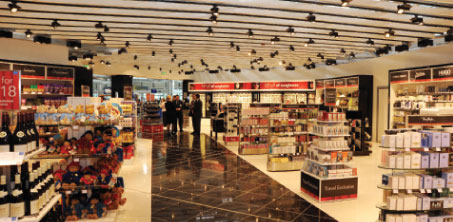
The ETRC is seeking to expand the Espace Voyageur concept to create a distinct channel for the travel retail industry.
Following the downturn in passenger numbers as a result of the 2008 economic recession, a number of obstacles – ranging from the restrictions on the carriage of LAGs, to the single bag carry-on rule – have combined to pose a genuine threat to the future of travel retail.
While some of these threats have been overcome – including the removal last year of a World Health Organization (WHO) provision from its Draft Strategy to Reduce the Harmful Use of Alcohol, which had proposed taxing duty free alcohol sales – many still remain in what is proving to be a testing time for the industry.
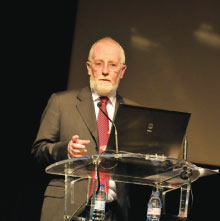
O’Connell: “We have always felt that it’s disingenuous to suggest that duty free sales undermine national taxation policies.”
However, the proposed first stage lifting of the restrictions on LAGs, which is currently scheduled for 29 April, could prove to be a positive step in terms of driving sales for the sector, according to O’Connell.
“Our consistent position has been that we will support the lifting of restrictions because it makes sense from our point of view as retailers, but only when we can ensure that what replaces the current restrictions is a solution that works better for the passenger,” he said.
Perhaps the most significant of the threats is that to duty free tobacco sales. A WHO Working Group has been established to examine the use of price and taxation policies as a means to reduce the demand for tobacco, while the WHO Tobacco Free Initiative’s Technical Report on Taxation Policies of Tobacco Products has also claimed that duty free sales undermine national taxation policies.
O’Connell said: “The duty free sector operates in a very limited environment. It’s highly controlled and regulated, so we have always felt that it’s disingenuous to suggest that duty free sales undermine national taxation policies.”
Refuting the claims that duty free sales contribute to the illicit trade in tobacco, he continued: “We have to work very closely with the governments and Customs authorities so it’s a very tightly regulated and constrained industry. We also have to remember that the duty free tobacco industry accounts for less than 1% of the global tobacco industry.
“The reality is that the illicit tobacco trade damages duty free as well so we’re happy to continue to engage with the relevant authorities to do all we can to help combat this and protect the integrity of the duty free sector.”
The next round of negotiations on the Illicit Trade Protocol will be held in early 2012 and O’Connell explained that the “next 9 to 10 months are critical” and that the industry must unite to challenge the threats posed.
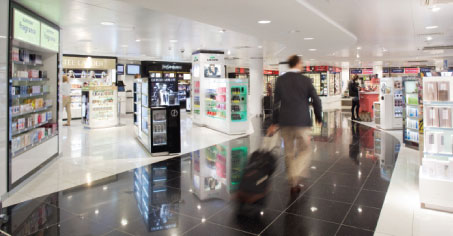
O’Connell: “It’s very important that we continue to engage so that we have a strong voice in Europe.”
He said: “It’s really important that the duty free industry continues to engage with the respective governments where they operate and communicate both our concerns and our support for the combating of illicit trade. This does not only concern the duty free tobacco industry, but the whole duty free industry and our partners, because we’re essentially working on behalf of the airports. The current consultation on the EU Tobacco Products Directive raises the issue of a potential tobacco display ban at airports and we’re working alongside ACI EUROPE and the airports to tackle this.”
Collezioni – Bringing fashion to the runway
Collezioni by McArthurGlen Luxury Retail offers developing airports a unique business opportunity to trade an exclusive portfolio of luxury international fashion brands, each in their own standalone stores. With a team highly experienced in travel retail and well connected in fashion, Collezioni has been busy opening the doors for yet more compelling brands at developing airports.
Venice Marco Polo Airport, majority owned and operated by SAVE SpA, was the first Collezioni location, opening in 2008 in a development of 1,500sqm across two levels. Passengers can shop 18 brands including Burberry, Lora Piano, Bulgari, Montblanc and Valentino.
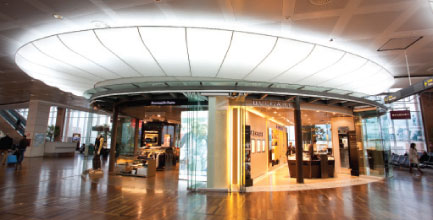
Collie: “I’ve always lived by the premise that the customer is at the heart of a good retail operation.”
Enrico Marchi, President of SAVE, said: “Collezioni is the jewel in our crown and helps place Venice Marco Polo Airport at the forefront of retail innovation by providing our passengers with an experience unmatched by all but a handful of the world’s elite airports.”
Brian Collie, Chairman of Collezioni, added: “I’ve always lived by the premise that the customer is at the heart of a good retail operation and Collezioni enables many developing airports to give their customers a range of fashion that surprises and delights them. The positive commercial returns for brands and airport alike have enabled us to create similar opportunities at Dublin and Glasgow airports and we’re always interested in exploring new and exciting airport opportunities.”
One bag rule
The single bag carry-on rule – which states that passengers can only carry one piece of hand luggage on board their flight – has also proved to be another source of frustration for the travel retail industry.
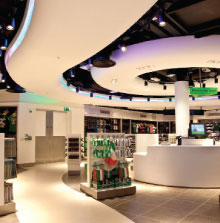
ACI EUROPE last year issued a Recommended Practice urging airports to protect their commercial business against the single bag carry-on rule.
“It has been enforced sporadically at different airports and that in itself is a problem for the passenger because they are unsure of what the rules are,” O’Connell explained. “One of the biggest problems for retailers is having customers feel uncertain about what they can and can’t do.
“This is a very serious issue and we need to find a way of dealing with it. Again, ACI EUROPE is doing a lot on this front in terms of coming up with a Recommended Practice.”
This Recommended Practice was issued last year and advises that airports should ensure that their Airport User’s Regulations require users not to impose any rule or implement any practice in relation to their passengers, which may directly or indirectly affect the airport’s non-aeronautical activities or operational procedures.
In order to protect the travel retail channel and distinguish it from high street retail, the ETRC is also seeking to expand the Espace Voyageur concept, which has been in place since 2005 in France and differentiates the French travel retail market from domestic, high street retailing.
As part of this, as the European Union works on implementing an EU-wide food labelling regulation, the ETRC is actively working to ensure that travel retail is exempt from any such ruling.
O’Connell said: “This is something that we’ve been involved in for some time and we want to make sure that any labelling regulation takes into account travel retail and our needs. Foods need to be labelled in a way that represents the international market that we serve and it can’t be based on regional regulations, so we’re working with the European Commissioner to work out a solution.”
He continued: “We want a distinct channel for travel retail and this would require the authorities, when producing retail legislation, to take into account the impact that it will have on travel retail.
“We’ll be working closely with ACI EUROPE on all of these issues because they affect us all and it’s very important that we continue to engage so that we have a strong voice in Europe.”
Butlers’ travel retail innovation
Established in 1932, Butlers Chocolates pioneered the development of the premium chocolate category in Dublin Airport, at a time when the category was in its infancy on the Irish high street. As well as its exclusive range of products for travel retail, Butlers is also well known for its unique café and chocolate shop concept – Butlers Chocolate Cafés, both in Ireland, where there is a flagship café at Dublin Airport, and internationally.
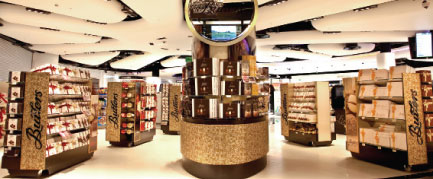
Butlers has recently opened two new Chocolate Café Kiosks at both the domestic and international departure lounges at Jinnah International Airport, Karachi.
Most recently, Butlers Chocolates has opened two new Chocolate Café Kiosks at both the domestic and international departure lounges at Jinnah International Airport, Karachi.
This new Chocolate Café Kiosk format will serve to further strengthen the Butlers brand as the company continues to expand internationally. For operators, this is an interesting new format using a proven concept. The brand is now available in over 25 countries worldwide as well as 50 international airports (including Heathrow, Dubai, Bahrain, Lisbon, Schiphol, Delhi, Abu Dhabi and Sydney).
The travel retail industry recognised Butlers Chocolates’ contribution to the sector in October 2009 when the company was awarded the prestigious Supplier of the Year award at the Frontier Awards in Cannes.
Butlers Chocolates will be exhibiting in the Irish Pavilion at this year’s ACI EUROPE Airport Trading Conference and would be happy to arrange meetings in advance.







